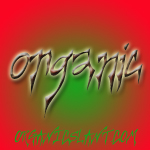 (Organic Slant) “Organic food is a consumer scam, over-priced lie and an empty promise”, is the new mantra from conventional, processed food companies.
(Organic Slant) “Organic food is a consumer scam, over-priced lie and an empty promise”, is the new mantra from conventional, processed food companies.
A new Harris Poll found that 59 percent of 2,276 adults surveyed believe the “organic label is just a business strategy.” They think food companies slap it on products as a gimmick to charge them more.
Even if non-organic fruits and vegetables are no different nutritionally from organic produce, some consumers worry about ingesting vegetables that have been treated with chemical pesticides, fertilizers and weedkillers.
Although research suggests that these are easy to wash off and cause no negative effects on those who ingest non-organic veggies, systemic pesticides cannot be washed off.
Genetic modification(GM), pesticides and all the other garbage chemicals are present in conventional food. People can believe what they want, but USDA Organic CERTIFY that certain chemicals are not used in the production of agriculture and it keeps the genetically modified garbage out our bodies.
Organic food is certainly worth it. Why?
WHAT THE ORGANIC SCEPTIC FORGOT TO TALK ABOUT OR MENTION!
Price
The reason it costs more is because the labor is higher (instead of spraying weeds once and killing everything except the corn/soybeans), organic farmers are supplementing the soil several times a year with organic matter, plowing weeds, and in general being very pro-active in management of their crops, soil, and water quality. The materials used in organic processes and farming are very well vetted by independent agencies, and the National Organic Standards Board (look it up at ams.usda.gov/nop). Many of the people involved in producing organic food (whether it is a farmer or processor) are dedicated to the process and want to have a third party come to look at their systems to ensure they are following the rules
Labeling
In the U.S., food products that contain genetically modified organisms (GMOs) do not have to be labeled as such. The big thing about buying organic is that unless it says USDA (or other reputable agency) Certified Organic, it may not be organic at all. Companies can just lie and say that it is, especially now that Obama signed the Monsanto Protection Law into place. Food labeling has gone all to hell.
Pesticides
Conventional growers use pesticides to protect their crops from molds, insects and diseases. When farmers spray pesticides, this can leave residue on produce. Some people buy organic food to limit their exposure to these residues. According to the USDA, organic produce carries significantly fewer pesticide residues than does conventional produce. However, residues on most products — both organic and nonorganic — don’t exceed government safety thresholds.
Exposure to pesticides increases the risk for Parkinson’s disease (PD) by as much as 80%. The analysis shows that exposure to the weed killer paraquat or to the fungicides maneb or mancozeb was particularly toxic, yielding about a 2-fold increase in the risk for PD, and that the risks of farming and rural living are also significant.
Food additives
Organic regulations ban or severely restrict the use of food additives, processing aids (substances used during processing, but not added directly to food) and fortifying agents commonly used in nonorganic foods, including preservatives, artificial sweeteners, colorings and flavorings, and monosodium glutamate.
Minerals
There is some evidence showing that organic food may have higher levels of certain minerals than their non-organic counterparts.
Irradiation
Because organic is not radiated, it tends to have a much shorter shelf life, and thus is usually fresher and, therefore, tastier.
Environment
Some people buy organic food for environmental reasons. Organic farming practices are designed to benefit the environment by reducing pollution and conserving water and soil quality. It’s not only good for the environment, it’s good for the workers as well.
Here are some key differences between conventional farming and organic farming:
| Conventional | Organic |
|---|---|
| Apply chemical fertilizers to promote plant growth. | Apply natural fertilizers, such as manure or compost, to feed soil and plants. |
| Spray synthetic insecticides to reduce pests and disease. | Spray pesticides from natural sources; use beneficial insects and birds, mating disruption or traps to reduce pests and disease. |
| Use synthetic herbicides to manage weeds. | Use environmentally-generated plant-killing compounds; rotate crops, till, hand weed or mulch to manage weeds. |
| Give animals antibiotics, growth hormones and medications to prevent disease and spur growth. | Give animals organic feed and allow them access to the outdoors. Use preventive measures — such as rotational grazing, a balanced diet and clean housing — to help minimize disease. |
The Organic Sceptic – Mischa Popoff
1.There is NO TESTING.
WRONG
A press release issued by the Institute of Science in Society stated, “It is clear that genetic modification is inherently hazardous, as it invariably results in unpredictable and uncontrollable changes in the genome and the epigenome (pattern of gene expression) that impact on safety.”
2. Slick marketing.
WRONG
3. Organic food kills.
WRONG
D.I.Y.
The only way to truly rely on organic produce, is to grow your own.
 Hotter Is Better For Removing Allergens In Laundry
Hotter Is Better For Removing Allergens In Laundry Headache Most Common Adverse Experience In Neotame Study
Headache Most Common Adverse Experience In Neotame Study STINK! The Movie The Chemical Industry Doesn’t Want You To See
STINK! The Movie The Chemical Industry Doesn’t Want You To See